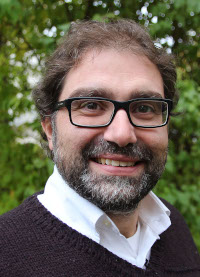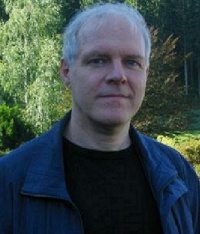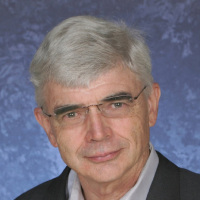In addition to the advanced research talks in the general area of complex analysis, partial differential equations and holomorphic dynamics, there will be two mini-courses consisting of 4 lectures of 50 minutes each. The three mini-courses are designed for graduate students and recent PhDs working in the general area of complex analysis.

Filippo Bracci
The first mini-course will be given by Filippo Bracci (Universita Roma 2).
Title: Prime ends and hyperbolicity in one complex variable.
Abstract: In this course we focus on hyperbolic geometry on simply connected domains, giving a connection between Caratheodory prime ends topology and Gromov topology. We introduce quasi-geodesics (a l`a Gromov), the shadowing lemma (or stability of geodesics lemma), and applications to the study of convergence (tangential, non-tangential) of preimages of slits under Riemann maps. We also discuss of localization of the hyperbolic metric and distance. A tentative plan of the course is the following:
Lecture 1. Preliminaries: (some) properties of univalent functions (no Koebe arcs, boundary behaviors, distortion theorems). Prime ends and Caratheodory topology. Limits.
Lecture 2. Hyperbolic metric and distance in the unit disc. Hyperbolic metric and distance in simply connected domains. Estimates of the hyperbolic distance and metric. Geodesics.
Lecture 3. The shadowing lemma. Gromov’s hyperbolic spaces and Gromov’s topology (and relations with the Caratheodory topology).
Lecture 4. Totally geodesics subset. Localization principles of the hyperbolic distance. Some examples of localization. Applications to semigroups of holomorphic self-maps of the unit disc.

Jean-Pierre Demailly
The second mini-course will be given by Jean-Pierre Demailly (Université Grenoble Alpes).
Title: L2 estimates in complex analysis and geometry
Abstract: The purpose of the course will be to introduce concepts of complex differential geometry leading to existence theorems for solutions of Cauchy-Riemann equations on complex manifolds. In particular, we will show how Hilbertian methods coupled with the Bochner-Kodaira-Nakano identity result in general $L^2$ estimates of Hörmander type for forms with values in Hermitian vector bundles. One then usually work on Kähler manifolds possessing adequate pseudoconvexity properties, and one has to assume suitable positivity conditions for the bundles under consideration; in particular, this amounts to make plurisousharmonicity hypotheses for the weights involved. These techniques have many applications in complex geometry: cohomology vanishing theorems in algebraic geometry (Kawamata-Viehweg-Nadel), embedding theorems for projective or Stein varieties, $L^2$ extension theorems (Ohsawa-Takegoshi), approximation theorems, etc.

Emil J. Straube
The third course will be given by Emil J. Straube (Texas A&M University).
Title: L2–Sobolev theory for the complex Green operator
Abstract: I will introduce theL2–Sobolev theory of the tangential Cauchy–Riemann equations on pseudoconvex closed CR–submanifolds of Cn of hypersurface type. In particular, I will discuss recent results of Baracco on ‘filling in’ a complex manifold and closed range of ∂b (2012), of Straube and Zeytuncu on global regularity of the complex Green operator (2015), and of Biard and Straube on symmetry, percolation, and interpolation (between form levels) of these and/or related estimates (2019). At this time, the plan is to have three lectures of 90 minutes each, as follows.
Lecture 1. CR–submanifolds of hypersurface type; the ∂b–complex
Lecture 2. The complex Green operator; symmetry and percolation ofestimates
Lecture 3. Sobolev estimates for the complex Green operator:





